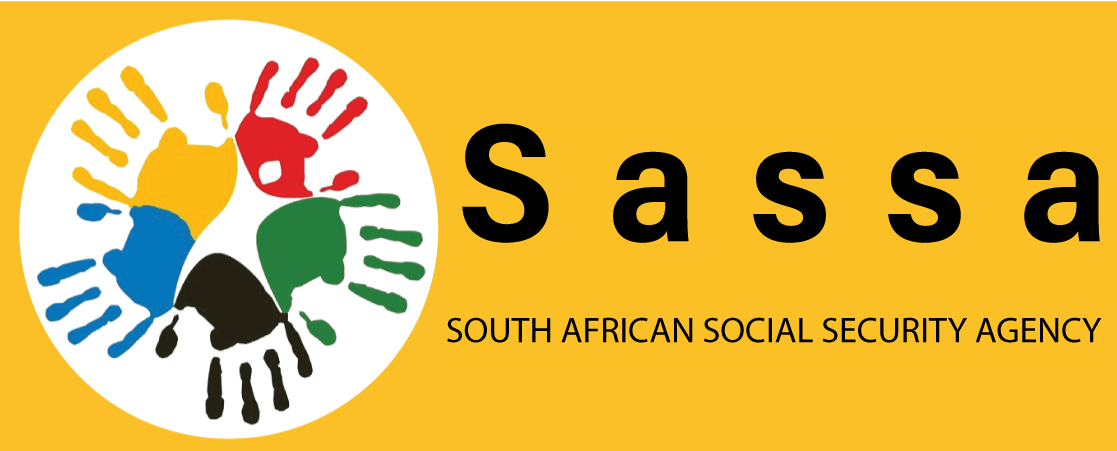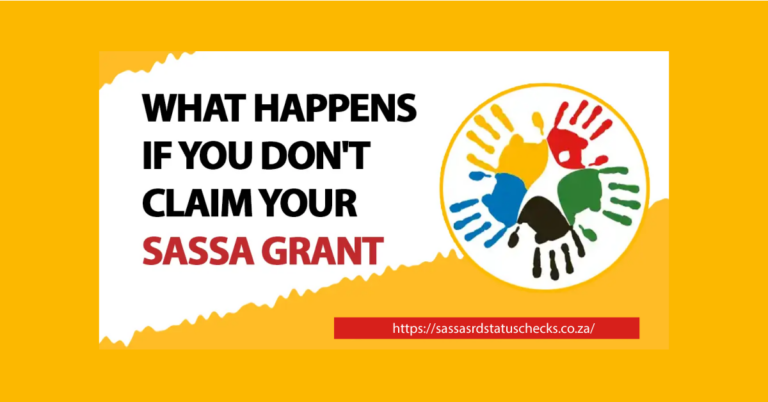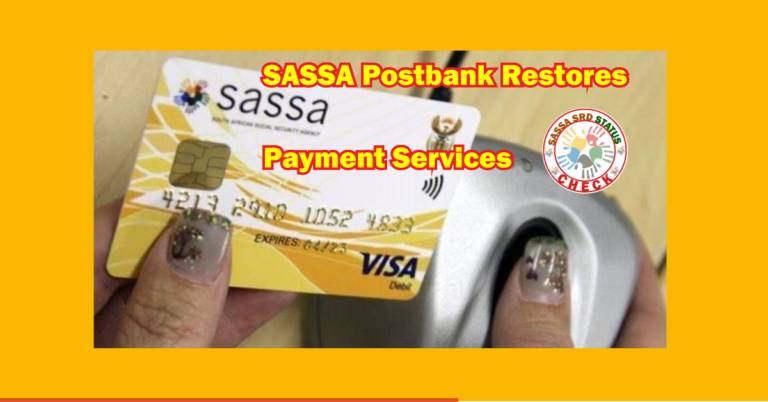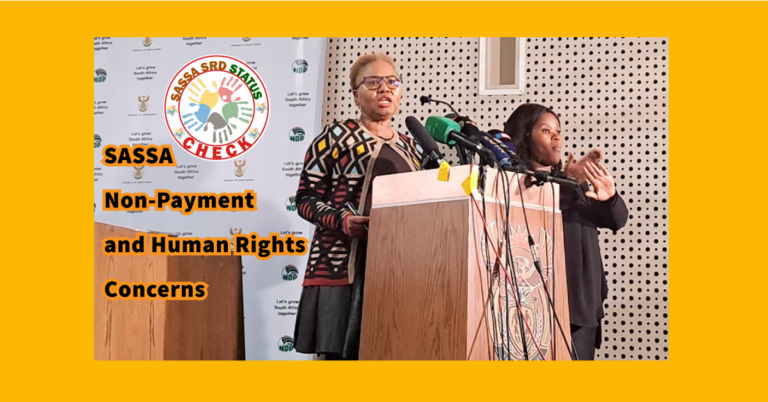How to Avoid Scammers and Protect Your SASSA Benefits
SASSA (South African Social Security Agency) benefits are a lifeline for many individuals and families across South Africa, providing essential financial support to those in need. However, with the rise of digital communication and online transactions, scammers have increasingly targeted SASSA beneficiaries to defraud them of their benefits.
There has been a rise in fraud targeting people receiving SASSA benefits recently. These frauds steal personal data or trick you into giving away your grant money. This blog post will help you get the knowledge to identify and avoid these scams, ensuring your SASSA benefits remain secure.
A Clear Understanding
Scammers use various tactics to deceive SASSA beneficiaries and steal their benefits. One common method is through phishing emails or text messages that appear to be from SASSA or other official sources. These messages often ask for private data such as ID numbers, banking details, or PINs. Scammers may also call victims and pretend to be from the SASSA to trick them into giving up personal information.
It can be risky to fall victim to these scams. Not only may beneficiaries lose access to their benefits, but they could also face financial losses and even identity theft. Stolen identity information can be used for further criminal activity, impacting your credit score and causing significant difficulty.
10 Common Scams Targeting SASSA Beneficiaries
Scammers are constantly using new methods to steal personal information. Here are 10 common scams targeting SASSA beneficiaries, along with how to identify and avoid them:
1. Fake Websites and Phishing Emails
Deceptive websites that mimic the official SASSA website often have misspelled URLs or unprofessional designs. Always access the SASSA website by typing into the search bar.
Phishing emails appearing as legitimate SASSA communication may contain links to these fake websites or request personal information directly. Be cautious of unknown emails, and never click on links within them.
2. Phone Call Scams
Scammers may pose as SASSA representatives, calling with urgent requests to “update your information” or “verify your account.” They might threaten to suspend your grant if you don’t follow. SASSA will never request personal information over the phone. If you get a call, don’t share any information and report it to SASSA.
3. SMS Scams
Deceptive text messages claiming grant issues or urgent action often include suspicious links or request personal information. SASSA will not contact you about your grant via SMS unless you’ve chosen for updates. Be aware of unknown SMS and never respond with personal details.
4. Social Media Scams
Fake SASSA accounts on social media platforms may contact beneficiaries with false information or phishing links. SASSA has official social media pages, but they will never request personal details through these channels. Always check the account’s credibility before interacting with it on social media.
5. ATM Scams
Scammers offering “help” at ATMs can steal your PIN by observing you enter it or install skimming devices on the ATM to capture your card data. Be cautious of anyone offering assistance at ATMs and hide your PIN when entering it.
6. “Lost” Card Replacement Scam
Scammers may contact you about a lost or stolen SASSA card (even if you haven’t lost one) and request personal details to “replace” it. SASSA will contact you through official channels if your card is lost or compromised. Never share personal information over the phone regarding your SASSA card.
7. “Early Access” Grant Scam
Scammers may promise early access to grant payments in exchange for some charges. SASSA will never require any fees or charges for accessing your grant. This is a clear scam attempt.
8. “Grant Increase” Scam
Deceptive messages may claim you qualify for a grant increase but need to provide verification details. SASSA will notify you directly of any grant changes through official channels. Never share personal information based on such unwanted messages about grant increases.
9. “Beneficiary Verification” Scam
Scammers posing as SASSA representatives may request verification of personal information through calls, texts, or fake websites. SASSA will not request verification through these methods. Contact SASSA directly using their official phone numbers or website if unsure about the legitimacy of a request.
10. Malware Attacks
Emails or messages containing attachments or links on your device can potentially steal your information. Be cautious of suspicious attachments and only download files from trusted sources. Consider using antivirus software for added protection.
These scenarios highlight the various tactics used by fraudsters to exploit SASSA beneficiaries and steal their personal information and benefits. Beneficiaries need to remain active and cautious before sharing any sensitive information with scammers.
How to Report SASSA Fraud if You’re Already Scammed?
If you suspect you’ve been scammed, it’s important to act quickly to minimize the damage and help prevent others from falling prey to the same scheme. Here’s what you’d do:
Secure Your Information
If you’ve shared any personal details, take steps to secure your information. Change your SASSA card PIN immediately. If you suspect your bank details may have been compromised, contact your bank to report the incident and discuss potential account security measures.
Report the Scam to SASSA
There are several ways to report a SASSA scam:
- Online Website: Visit the SASSA website and find a dedicated online reporting form.
- Phone Call: Call the SASSA fraud hotline: 0800 60 10 11.
- SASSA Office: You can also report the scam in person at any SASSA office.
- Report Identity Theft: If you believe your ID number has been compromised, consider reporting it to the South African Police Service (SAPS) or the South African Fraud Prevention Service (SAFPS).
Remember: Scammers may try to contact you again, posing as someone offering to help recover your lost funds. Remain vigilant and don’t engage in any further suspicious communication.
Conclusion
So, SASSA beneficiaries need to be vigilant and take proactive steps to protect their benefits from scammers. By understanding the above tactics used by fraudsters and taking steps how to avoid scammers and protect your personal information, you can reduce the risk of falling victim to scams.
Remember, SASSA will never ask you to disclose private data or make transactions over the phone or online. If you notice any suspicious activity on your SASSA benefits, first verify its authenticity and then take action.





![SASSA Grant Workshops and Training: Empowering Applicants [Updated]](http://3.76.98.97/wp-content/uploads/2024/05/SASSA-Empowers-Applicants-768x402.png)
